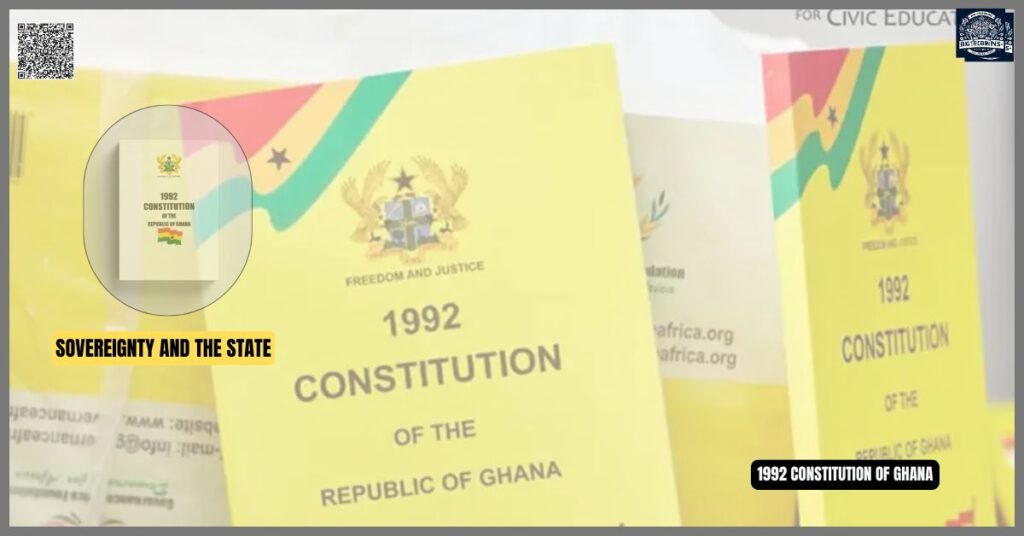Professional Summary of the 1992 Constitution of Ghana
Chronological Overview
Background and Drafting (1991–1992):

- The Constitution was drafted by the Consultative Assembly, established by the Provisional National Defence Council (PNDC) government.
- Ratified through a national referendum on April 28, 1992, with over 90% approval.
- Came into effect on January 7, 1993.
Amendments and Revisions:
- The Constitution has been amended to address governance issues, decentralization, and other administrative reforms. Some key legislative actions (not necessarily amendments) include the creation of independent commissions and regional boundaries.
Key Sectors | Constitutional Provisions
Preamble and General Provisions
Protection:

- Article 1 establishes the Constitution as the supreme law, rendering any other law inconsistent with it void.
Sovereignty and the State
Content:

- Articles 1–4 declare Ghana as a unitary republic and affirm the sovereignty of the people.
The Executive (Articles 57–88)
Content:

- Defines the powers, responsibilities, and limitations of the President as the head of state and government.
Protection:
- Article 58 vests executive authority in the President, subject to parliamentary oversight and judicial review.
The Legislature (Articles 93–124)
Content:

- Establishes a unicameral Parliament with legislative powers vested in elected representatives.
Protection:

- Article 103 provides for parliamentary committees to scrutinize governance processes, enhancing transparency.
The Judiciary (Articles 125–162)
Content:

- Guarantees judicial independence and outlines the structure of the judiciary, including the Supreme Court as the highest court.
Protection:

- Article 127 ensures that judges are insulated from political interference and provides for their security of tenure.
Fundamental Human Rights and Freedoms (Articles 12–33)
Content:

- Enshrines civil, political, economic, and social rights, such as the right to life, freedom of speech, and protection against discrimination.
Protection:

- Chapter 5 empowers the Commission on Human Rights and Administrative Justice (CHRAJ) to ensure compliance with these rights.
Decentralization and Local Government (Articles 240–256)
Content:

- Establishes Metropolitan, Municipal, and District Assemblies (MMDAs) to promote local governance and participatory democracy.
Protection:

- Article 241 ensures MMDAs operate independently, with powers to oversee development in their jurisdictions.
Electoral System (Articles 42–56)
Content:

- Provides for universal adult suffrage and the establishment of the Electoral Commission (EC).
National Development
Content:

- Article 36 mandates the State to pursue policies that promote sustainable economic and social development.
National Security (Articles 83–91)
Content:

- Establishes the National Security Council to safeguard peace, security, and public order.
Accountability and Public Office (Articles 286–288)
Protection:

- Article 286 mandates public officials to declare their assets to the Auditor-General before assuming office.
Independent Constitutional Bodies
Significance and Impact
Content:

- The 1992 Constitution has provided Ghana with a robust framework for stability and democratic growth.
- It has fostered a multi-party political system, upheld judicial independence, and safeguarded human rights.
- The decentralisation provisions have promoted grassroots participation in governance.
Protection:

- Article 286 mandates public officials to declare their assets to the Auditor-General before assuming office.
Share via:

